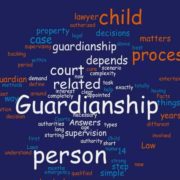Planning for Married Couples Using Portability and Bypass Trusts
Planning for Married Couples Using Portability and Bypass Trusts
As Seen Published in the Cleveland Metropolitan Bar Journal
Significant expansion of the federal estate tax exclusion has dramatically changed how estate planning professionals plan for married couples. In 2000 when the federal estate tax exclusion was merely $675,000 and federal tax rates peaked at fifty-five percent (55%), bypass trusts or “credit shelter trusts” were a popular means of sheltering wealth to preserve assets for a surviving spouse and children. Today however, the exclusion amount has grown to an astounding $5.49 million per-spouse which is now “portable” and can be carried over to the surviving spouse’s estate. Thus, significant changes in recent years have compelled estate planning attorneys to consider the concept of portability versus bypass trusts.
What is a Bypass Trust?
Bypass trusts are historically an effective tool designed to minimize estate taxes by sheltering wealth into a trust. The concept is pretty straightforward: every individual is afforded an exemption amount that permits their estate to transfer to a surviving party without suffering loss to federal estate taxes. Conversely, before portability, married couples would lose one of these exemptions at the death of the first spouse. At the death of the second spouse, if the value of the estate exceeded the surviving spouse’s exemption, it would be taxed at the federal estate tax rate. For example, when the exemption amount was $675,000 in the year 2000, a person dying with $1 million in his or her estate would result in $178,750 in federal estate taxes because the remaining $325,000 over the exemption is taxed.
Married couples could avoid these tax implications by directing some of their estate to a bypass trust that would support the needs of the surviving spouse, while also sheltering that portion of the estate from unnecessary taxation. This may be accomplished by dividing the estate into two portions. Instead of leaving the entire estate to a surviving spouse, the deceased spouse leaves assets for their children in one trust account and a separate trust account for the surviving spouse’s benefit. Assets placed in the separate trust account for children reduce, if not eliminate, estate taxes entirely.
Advantages for Larger Estates Using Bypass Trusts
With larger estates, bypass trusts may be a better planning option when considering the financial and tax implications for married couples. By far the greatest advantage is that appreciation of the trust assets and undistributed income will not be subject to federal estate tax upon the surviving spouse’s passing. This is especially important for assets in the decedent’s estate that may appreciate drastically before the surviving spouse’s death. In addition, if intergenerational planning is important, bypass trusts are likely a better option over portability because they allow for use of the generation-skipping tax exclusion of the first spouse to pass. Portability is not available for the generation-skipping tax exemption thus, portability would simply not work.
Providing Asset Protection
Aside from the tax implications, asset protection will sometimes compel the need for establishing a bypass trust over portability. If properly drafted, the trust creates a certain level of asset protection for children and a surviving spouse. Coupled with credit shelter spendthrift provisions, the trust may preclude the assets from being attacked by the creditors of trust beneficiaries. This form of asset protection is particularly important and commonly used for beneficiaries who are in a “shaky marriage” and/or who have spending issues. While a surviving spouse may not have obvious significant creditor or litigation risks (like being a surgeon or professional athlete), creditor protection should always be on the horizon. When compared to portability, the fact remains that estate planning using bypass trusts can remain relevant at nearly all levels of net worth if the driving reason for the trust is a non-tax concern.
Disadvantages
Bypass trusts serve an important and necessary purpose to preserve an estate against creditors and divorce. However, for smaller estates, this protection comes with taxable consequences. Unlike the use of portability, there is no second step-up in basis at the death of surviving spouse. For smaller estates, this could leave beneficiaries paying a great deal in income tax upon the disposition of the asset. Further, undistributed income of the trust can be subject to higher income tax rates than individuals. In addition, although minimal, there may be an added annual expense of filing a trust tax return. Finally, the use of bypass trusts will require the retitling of assets which can sometimes be tedious and relatively costly.
What is Portability?
The American Taxpayer Relief Act of 2012 has been a game changing concept when planning for married couples. Since the Act, portability is now a permanent part of the federal estate tax system, which means each spouse’s estate tax exclusion that is unused at death is portable and can be carried over to the surviving spouse. It has effectively doubled the exemption amount for combined assets of married couples to over $10 million. With portability, assets are stepped up in basis at the death of the first spouse, and then are stepped up again at the death of surviving spouse. For families with larger retirement assets, portability has proven to have several advantages.
Advantages of Portability
The biggest advantage for using portability, especially for smaller to medium estates, is the use of step-up in basis. This is in contrast to using a bypass trust, where the assets are stepped up at the death of the first spouse, but not at the death of the second spouse. Compared with bypass trusts, there is no need to retitle assets or divide assets into separate trust shares when using portability. For the most part, portability is simple and can be utilized even in lieu of estate planning prior to death.
Downside to Portability
If the client’s goal is to protect assets of beneficiaries from remarriage, creditors, and/or divorce, then portability is probably not the only planning tool that should be considered. With portability, a portion of inherited assets are subject to the surviving spouse’s present and future creditors, as well as creditors in bankruptcy and, if the surviving spouse remarries and then divorces, to ex-spouses. Additionally, portability is not available for the generation-skipping tax exemption. Although retitling of assets is not required, the use of portability is not automatic. Timely estate tax returns must be filed and may require additional cost from tax professionals.
A Quick Comparison
Let’s assume Ken and Kathy have a combined net worth of $10.98 million. Ken dies in 2016 and Kathy dies in 2026. During this 10-year period we will assume the federal estate tax rate will be forty percent (40%) and they live in a state with no estate or income tax.
Using Portability
Ken forgoes setting up a trust and instead relies on portability. Let’s assume that over the ten-year period after Ken’s death, the total estate grows at a modest five percent (5%) annually. This would yield a total combined estate of $17.88 million when Kathy dies in 2026. Not taking into account inflation, Kathy’s total estate tax exclusion will be both Ken’s unused portion plus her own, totaling $10.98 million. Consequently, the total amount subject to estate tax is $6.9 million ($17.88m – $10.98). At a forty percent (40%) tax rate, the possible resulting federal estate tax is $2.76 million.
Using Bypass Trusts
Now let’s assume that Ken created a bypass trust which at death would become irrevocable and funded the family trust account to its maximum of $5.49 million. When Kathy dies 10 years later, all of the appreciation within the family trust will escape estate tax. Here, the resulting taxable estate is $3.45 million opposed to $6.9 using portability. Kathy still maintains her $5.49 exclusion resulting in the total estate tax of $1.38 million.
In sum, portability has the benefit of simplicity and $5.49 million of a portable exemption. For smaller estates without intergenerational or asset protection concerns, portability appears to be the better option. On the other hand, regardless of the size of the estate, bypass trusts remain effective at all levels of net worth if the driving reason is non-tax related. Estate planning goes well beyond the comparison of portability versus bypass trusts and careful consideration of the client’s needs should be implemented into every plan. For more information, contact Baron Law LLC at 216-573-3723 or dan@baronlawcleveland.com















